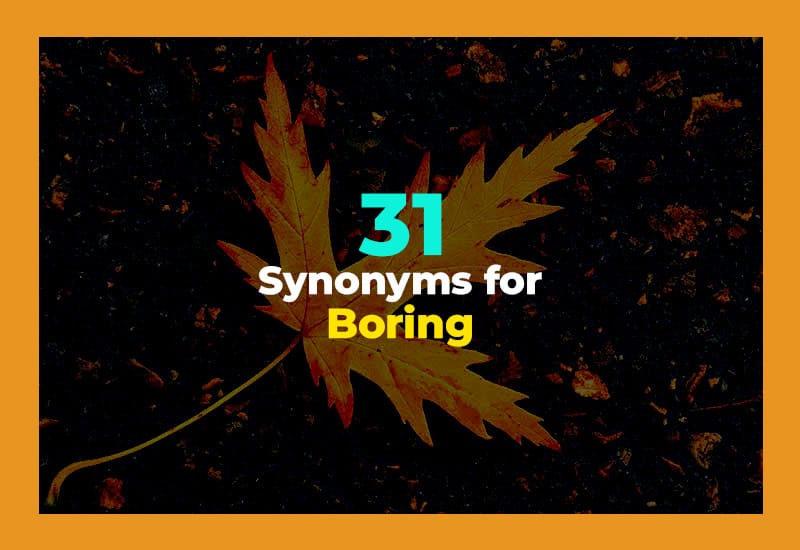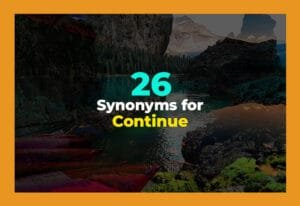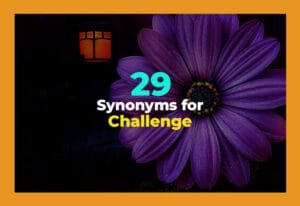You know that feeling when something is just plain dull and makes you want to yawn? Sometimes things feel so repetitive or lifeless, and we need new words to describe them better. Whether it’s a talk, a movie, or even a day, these 31 synonyms for boring will help you say it in fresh ways. Let's explore fun and simple words to keep your chats lively!
1. Dull
Dull means something is not interesting or exciting. It's often used when things feel slow or plain. For example, "The movie was dull, and I almost fell asleep." You can call a dull book or a dull person who doesn't tell fun stories. It's a basic way to say boring but still clear. When a color is not bright, we say it's dull too. So, dull can mean boring or just not sharp. If something doesn't catch your attention, it's probably dull.
2. Tedious
Tedious means something takes a long time and feels very boring. For example, "Filling out forms all day is tedious." It's like when you have to do the same thing over and over. A tedious task makes you want to stop because it's so slow and tiring. You can say a long meeting or a big cleaning job is tedious. This word is perfect when you feel bored and tired because something is too long or hard to keep doing.
3. Monotonous
Monotonous means something that stays the same again and again, making it boring. For example, "The teacher's voice was monotonous, so many students didn't pay attention." If a job or a sound never changes, it can feel monotonous. When you do the same thing every day, it feels like life is monotonous. This word is great to describe repeated actions or sounds that make you lose interest quickly.
4. Uninteresting
Uninteresting means something that does not catch your attention. For example, "The story was uninteresting, so I stopped reading." It's a simple way to say boring without sounding rude. If something doesn't make you curious or excited, it's uninteresting. You can use this word to talk about books, shows, or conversations that fail to keep you engaged. It's a gentle way to say something is boring.
5. Dry
Dry means something that is boring because it has no excitement or emotion. For example, "His speech was dry and full of facts." It's often used when something feels serious but dull. A dry joke means it's not funny, and a dry subject is hard to enjoy. If you want to say something is boring because it feels plain or serious, dry is a good word to use.
6. Lifeless
Lifeless means something has no energy or excitement. For example, "The party was lifeless; nobody was dancing." If something feels empty or dull, you can call it lifeless. It's like when a place or event feels sad or slow. A lifeless voice means it sounds boring without energy. Use lifeless when you want to say something is boring and has no fun or spirit.
7. Mundane
Mundane means something ordinary and not interesting. For example, "Doing laundry is a mundane task." It's often used for everyday activities that are boring because they are normal and happen all the time. If something feels common and not special, it's mundane. People use this word to describe daily chores or talks that don't excite them.
8. Repetitive
Repetitive means something is done or said again and again, which makes it boring. For example, "The song was repetitive, playing the same tune over and over." It's like hearing or doing the same thing so much that you get tired of it. Repetitive work or talks can lose your attention quickly. Use repetitive when you want to say something feels like it never changes.
9. Stale
Stale means something is boring because it is old or no longer fresh. For example, "The jokes were stale; I heard them many times before." It's like food that is no longer fresh and tastes bad. A stale idea or story feels tired and unexciting because it's been used too much. When you want to say something is boring because it's old or used, stale is a good word.
10. Tiresome
Tiresome means something makes you feel tired because it is boring or long. For example, "The long lecture was tiresome." It's often used when something feels heavy and slow. A tiresome task or event can drain your energy because it feels boring and hard to keep doing. Use tiresome when you want to say something is boring and makes you feel worn out.
11. Drab
Drab means something is dull and without color or excitement. For example, "The room looked drab with plain walls and old furniture." It's often used to describe places, clothes, or events that feel boring because they are plain or grey. Drab can also mean a boring personality or mood. It's a simple word to describe things that lack life or fun.
12. Uninspiring
Uninspiring means something does not give you energy or interest. For example, "The movie was uninspiring and slow." It's often used when you expect something to be exciting, but it isn't. An uninspiring talk or book leaves you feeling bored because it fails to motivate or entertain. Use this word to describe things that don't spark your excitement.
13. Wearisome
Wearisome means something is boring and makes you feel tired. For example, "The long wait at the airport was wearisome." It's similar to tiresome but can sound a bit more formal. Wearisome tasks or events make you want to stop because they drain your energy. Use this word when you feel bored and exhausted by something slow or long.
14. Humdrum
Humdrum means something is boring because it is normal and has no excitement. For example, "The humdrum life of a clerk can be very boring." It's often used to describe daily routines that never change. Humdrum shows that something feels plain and dull because it is always the same. It's a nice word for boring things that don't surprise or excite you.
15. Bland
Bland means something is boring because it has no strong taste or character. For example, "The soup was bland and tasteless." It's also used to describe stories, people, or places that feel boring because they don't stand out. A bland conversation might be quiet and uninteresting. Use bland when you want to say something is boring and plain, with nothing exciting or special.
16. Unexciting
Unexciting means something that doesn't create interest or fun. For example, "The game was unexciting and slow." It's a simple way to say boring. If something doesn't make you feel happy or interested, it's unexciting. You can use this word for movies, talks, or activities that don't catch your attention. It's easy to understand and friendly to use.
17. Colorless
Colorless means something that is boring because it has no life or energy. For example, "His colorless performance made the show dull." It's like a picture without colors, plain and boring. Colorless can describe people, places, or things that don't stand out or feel exciting. Use this word to say something lacks energy or fun.
18. Flat
Flat means something is boring because it has no emotion or excitement. For example, "The singer's flat voice made the song dull." It's often used to describe sounds, stories, or performances that feel lifeless. A flat speech can make people lose interest. Flat means plain and without any energy, perfect for saying something is boring and dull.
19. Mind-numbing
Mind-numbing means something is so boring that it feels like your brain stops working. For example, "The long math lecture was mind-numbing." It's used when something is extremely dull and makes you want to zone out. Mind-numbing shows how boring something can be, almost like it hurts your brain. Use this word when you want to say something is painfully boring.
20. Prosaic
Prosaic means something is boring because it is normal and not creative. For example, "The prosaic story did not excite the readers." It's a formal word for ordinary and dull things. Prosaic can describe ideas, writing, or events that lack imagination. Use this word when you want to sound a bit smarter while saying something is boring.
21. Lackluster
Lackluster means something is boring because it lacks energy or shine. For example, "The team gave a lackluster performance." It's like a light that doesn't glow well. Lackluster can describe anything that feels dull or unexciting. Use this word to say something is boring because it does not meet your expectations.
22. Forgettable
Forgettable means something is so boring that you don't remember it. For example, "The movie was forgettable and not worth watching again." It's used when something doesn't leave any strong impression. Forgettable things are boring because they don't stick in your mind. Use this word for books, movies, or events that feel unimportant or dull.
23. Unvaried
Unvaried means something is boring because it never changes. For example, "The unvaried routine made her days dull." It's used for things that stay the same over time, making life boring. Unvaried talks or jobs can make you lose interest. Use this word to describe anything that feels repetitive and dull.
24. Mechanical
Mechanical means something is boring because it feels automatic or without feeling. For example, "His mechanical answers made the conversation dull." It's like a robot doing things without thinking. Mechanical can describe actions or talks that feel boring because they have no life or fun. Use this word when you want to say something feels lifeless and dull.
25. Unimaginative
Unimaginative means boring because it lacks creativity. For example, "The book was unimaginative and easy to forget." It's used for ideas, stories, or art that don't feel fresh or exciting. Unimaginative things are plain and dull because they have no new or fun parts. Use this word when you want to say something is boring because it feels copied or simple.
26. Unappealing
Unappealing means boring because it doesn't attract you. For example, "The food looked unappealing and tasted bland." It's used for things that don't catch your eye or interest. Unappealing clothes or places can feel dull. Use this word when you want to say something is boring because it does not look or feel nice.
27. Deadpan
Deadpan means boring because it shows no emotion. For example, "His deadpan jokes did not make anyone laugh." It's often used for faces, voices, or talks that are serious and dull. Deadpan can also mean boring because it feels too plain or flat. Use this word when you want to say something is dull and emotionless.
28. Mediocre
Mediocre means boring because it is only average or okay. For example, "The movie was mediocre, nothing special." It's used when something is not very good or exciting. Mediocre things feel dull because they don't stand out. Use this word when you want to say something is boring because it's just normal and not great.
29. Run-of-the-mill
Run-of-the-mill means boring because it is normal and not special. For example, "The restaurant was run-of-the-mill, nothing exciting." It's used for things that are very common and boring. Run-of-the-mill describes everyday things that don't surprise you. Use this word when you want to say something is boring because it is usual and plain.
30. Banale
Banale means boring because it is too common and not original. For example, "The speech was banale and uninteresting." It's a formal word for dull and plain things. Banale is used for ideas, talks, or stories that feel tired because they are too simple or repeated. Use this word to sound smart when describing boring things.
31. Insipid
Insipid means boring because it has no flavor or interest. For example, "The movie was insipid and forgettable." It's often used for food, stories, or people that feel dull because they don't have strong qualities. Insipid things are plain and not exciting. Use this word when you want to say something is boring and lacks energy or fun.

Final Thoughts
Now you have 31 fresh ways to say boring! Whether something feels dull, lifeless, or just plain uninteresting, there's a perfect word for it. These synonyms help you express boredom in many ways, from casual chats to more formal talks. Next time you want to say something is boring, try one of these words and make your language more fun and clear!
| Synonym | Meaning | Example |
|---|---|---|
| Dull | Not interesting or exciting | "The movie was dull, and I almost fell asleep." |
| Tedious | Long and boring | "Filling out forms all day is tedious." |
| Monotonous | Repetitive and boring | "The teacher's voice was monotonous." |
| Uninteresting | Does not catch attention | "The story was uninteresting, so I stopped reading." |
| Dry | Boring without excitement | "His speech was dry and full of facts." |
| Lifeless | Without energy or excitement | "The party was lifeless; nobody was dancing." |
| Mundane | Ordinary and boring | "Doing laundry is a mundane task." |
| Repetitive | Done again and again | "The song was repetitive." |
| Stale | Old and no longer fresh | "The jokes were stale." |
| Tiresome | Makes you tired and bored | "The long lecture was tiresome." |
| Drab | Dull and without color | "The room looked drab." |
| Uninspiring | Does not give interest | "The movie was uninspiring." |
| Wearisome | Boring and tiring | "The long wait was wearisome." |
| Humdrum | Normal and dull | "The humdrum life of a clerk." |
| Bland | Plain and unexciting | "The soup was bland." |
| Unexciting | Not interesting or fun | "The game was unexciting." |
| Colorless | Without life or energy | "His colorless performance was dull." |
| Flat | Without emotion or excitement | "The singer's flat voice was boring." |
| Mind-numbing | Extremely boring | "The math lecture was mind-numbing." |
| Prosaic | Ordinary and dull | "The prosaic story did not excite readers." |
| Lackluster | Without energy or shine | "The team's lackluster performance was sad." |
| Forgettable | Easily forgotten | "The movie was forgettable." |
| Unvaried | Never changing | "The unvaried routine made her days dull." |
| Mechanical | Automatic and lifeless | "His mechanical answers were boring." |
| Unimaginative | Lacking creativity | "The book was unimaginative." |
| Unappealing | Not attractive or interesting | "The food looked unappealing." |
| Deadpan | Without emotion | "His deadpan jokes were not funny." |
| Mediocre | Average and not exciting | "The movie was mediocre." |
| Run-of-the-mill | Common and plain | "The restaurant was run-of-the-mill." |
| Banale | Too common and unoriginal | "The speech was banale." |
| Insipid | Lacking flavor or interest | "The movie was insipid." |









